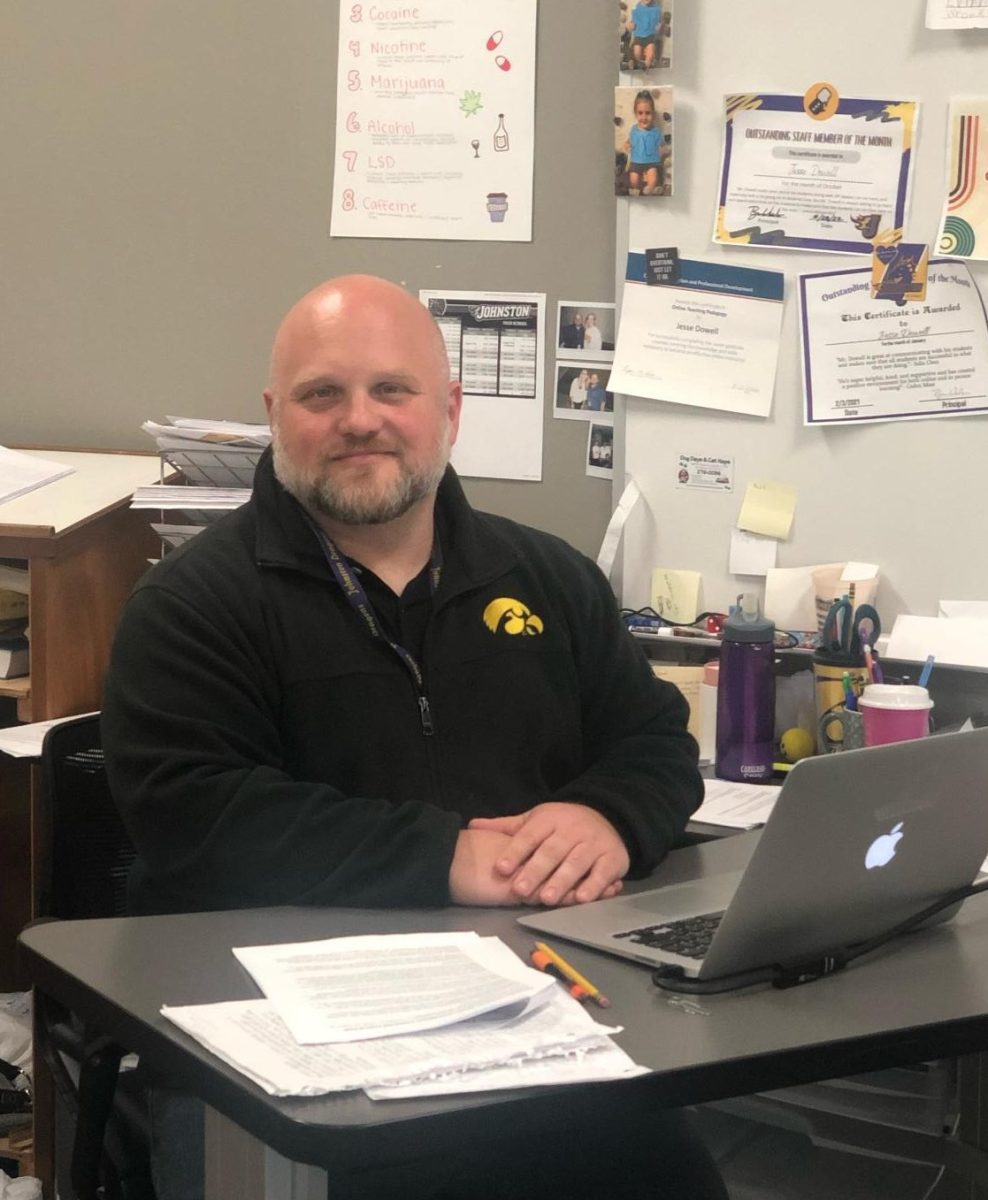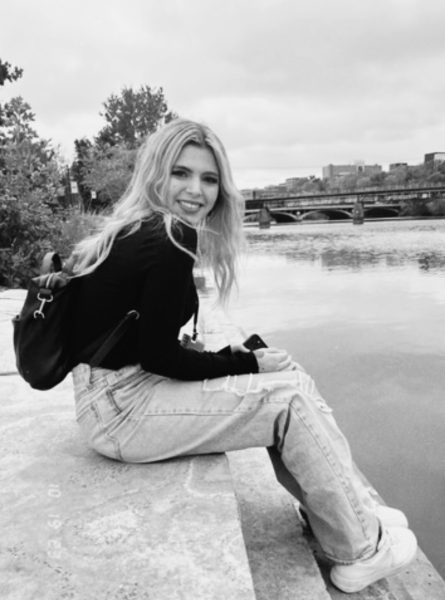B&W: Why did you become a teacher?
Dowell: Well, it was always on my short list of potential careers. I was thinking about teaching, maybe going into law or maybe starting a business one day. But I think, you know, probably the biggest thing that jumps out at me is I had a really great teacher in high school, a social studies teacher, and I just saw that as something to kind of aspire to. Like, wow, that would be really cool to be able to do what he does, and you know, I’ve always been interested in social studies, like history and psychology. So I always had a passion for that. So even when I went to college, I wasn’t totally sure. I got a degree in history, and then I even took a year off and tried to decide, you know, go into law or go into teaching? [I] decided teaching and kind of never looked back. So it wasn’t like there was just, you know, from day one, coming out of the womb, I knew, but it was always kind of in the top two or three. I felt like temperamentally, I probably fit better with teaching than some of the other ones I had thought about. I always like to help people and again, have a passion for what I’m teaching.
B&W: How did your own high school experience prepare you for teaching?
Dowell: One, having really good teachers helped. I guess also, maybe having not as good teaching sometimes helped me learn, what not to do, but, I don’t know, I felt like when I was in high school, I was someone who could get along with most people. Not that I was like, you know, like the most popular person, but, like, I just. I feel like I kind of got along with everybody, okay. And I felt like that’s maybe something I can kind of do here, as I don’t feel like I have, like, one specific group of students that I always kind of, oh, well, you know, this type of student likes it or that type of I feel like I can usually find a way to get along with just about, you know, anybody. And so being pretty easygoing, probably helped.
B&W: Did you face any struggles when becoming a teacher?
Dowell: There were struggles in that. I was the first person in my family to go to college, so I didn’t really have my family didn’t have money to send me, really. And, so I had to work full time through college, mostly. And just not having people in your family that have done it, like not having, you know, models to, you know, oh, well, this is what they did. But I do think part of that made me driven and not take it for granted. So there was some benefits there.
B&W: Do you face any struggles now as a teacher?
Dowell: I would say currently teaching the struggle is I’m just always trying to not get complacent. I think it’s sometimes easy for people who’ve been teaching a long time to. Just not getting complacent and you know, not like, oh, I’ll just do everything that I did last year and the year before and the year before, like always trying to reinvent, as needed and adapt to the times and just keep it fresh because like, I teach the same lesson, you know, six times per day. I’ve taught the same course for ten years. And so, like, it would be very easy just to slip into, ‘oh, this is what I’ve always done,’ and so always just try to look for better ways. And you know, as you get older too, it sometimes can be a challenge to stay connected to young people and kind of understand what they’re going through and how that’s different compared to how it was for me when I was that age.
B&W: What career were you interested in when you were in high school?
Dowell: Teaching was always at the top. It was near the top. You know, I think about how much. A lot of young people today really stress over feeling like they need to have it figured out, like I need to have it figured out now I need to know. And I was a little more okay with these are a few options, and I’ll just get to college and try some things and see what I gravitate towards, you know, maybe not everybody feels like they have that luxury if they, you know, ‘I need to know now so I can make this plan and this plan and that plan,’… I didn’t really have like again, I knew from day one what I wanted to be, um, but I knew that I loved history. I knew that I loved social studies, I knew that I liked helping people and that I had kind of the demeanor for that. And it was kind of naturally patient and and that kind of thing. So I had kind of narrowed down a little bit.
B&W: What do you hope students will gain from being in your class?
Dowell: One thing might sound counterintuitive, but I want students to be less confident in their opinions. So, not assuming that, like, ‘oh, I have it all figured out and I know that this is the truth.’ And, you know, being able to step back and consider alternate viewpoints and kind of stop themself when like, ‘hey, maybe I’m being biased here and this is why.’ But also hopefully learning some things about not judging other people, understanding that you don’t really know what is going on in people’s lives. And so if they are behaving different than how you might, you know, think is the correct way, like there could be a lot of reasons that you, you know, aren’t aware of. And so, you know, we get into that with like mental health and stuff and all kinds of things and just normalizing mental health and talking about it and among many things. But I do say one of my goals to parents is one of my goals is that when they come to spring conferences, that they complain to me that their student is like psychoanalyzing them at the dinner table using all the psych terminology. So, that’s always a good one I’ll throw out there too.



